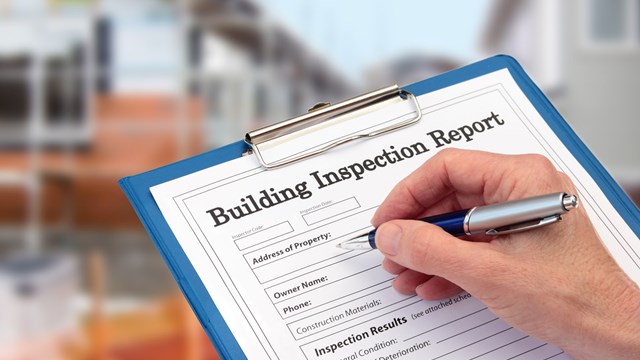Being a co-op or condo owner often means multi-tasking—especially if you happen to serve on your building's board. To keep your home in good repair and to comply with Local Law 11 and other city building codes governing façade repair and maintenance, it will eventually become necessary to hire professional contractors to perform exterior maintenance and/or repair work.
Hiring contractors for a job isn't too difficult—you solicit bids, ask around, check references, and do your homework, then hire the best fit for your building. But how can a board or management team not composed of architects, engineers or construction professionals know if a job being done on the exterior of a building is really progressing properly and efficiently? One simple solution may be for the board to hire a project manager to monitor the job.
A project manager oversees all aspects of the work being done on your building, and then reports back to the board and management about progress, problems, and other relevant information. If things aren't moving fast enough, or if the work is not being done properly, the project manager will act as a first line of defense for the management and the board, keeping contractors on time and on-task, even shutting the job down if conditions warrant the action.
Given the risks—both financial and physical—that are often associated with doing exterior renovations to a building, it may be well worth the fee to have an experienced, seasoned project manager overseeing the next round of exterior work you have done on your building.
A Common Component
Some exterior projects, such as minor repairs or small improvements to a building's facade, are simple enough that an expert needn't oversee them. A small project—like having façade bricks re-pointed, for example, or having sidewalks replaced—may be simple enough that it doesn't require a project manager, says Perry Finkelman, chief executive officer of American Development Group in West Hempstead. "Typically, your property manager should be able to handle those kinds of jobs," Finkelman says.
But for larger, costlier, and more hazardous projects, including a project manager on the job is recommended—sometimes it's even required by local law. Not having a project manager involved from the start can risk making an expensive project far more expensive due to contractor errors, change orders, and other avoidable project obstacles.
Hiring a project manager also helps minimize costly mistakes—if not avoid them altogether. If a large project is unmanaged and the contractor runs into problems, takes longer than planned, or has cost overruns, the board has no one to go to for an objective opinion. The dispute could result in litigation between the contractor and the building—and if it has to be hashed out in court, the association may have to pay even more money to have a separate contractor fix the uncompleted project.
The main benefit of hiring a project manager is having the knowledge of a trained professional to guide the project, says Jay Jupiter, owner of Jupiter Affiliates, a project management firm based in New York City. "Protection is the big thing a project manager offers. If they know their work, they'll be able to head off problems. They know what to do first, what to do in emergencies and how to manage negative situations. Project management is repair, renovation and technique, all wrapped into one."
Despite these benefits however, Jupiter says that too few buildings actually make use of project managers. "Usually the board doesn't want to spend the money on a project manager—they prefer to place the responsibility on the contractor's head." Jupiter says putting the responsibility on the contractor can lead to problems. "For every hundred buildings, maybe 40 hire a project manager."
Trained Eyes Scrutinize
Once a management team or board chooses to hire a project manager, how do they determine which candidates are qualified for the job?
Project managers can be architects, engineers, or people with specialized experience and training in construction methods. There are four-year and two-year college degrees in construction project management, but a qualified property manager may not have graduated from such a program before managing their first project. The main thing is that the manager understands the methods and materials to be used in the job on which they will be working.
In choosing a project manager, be sure to choose one that knows how to read blueprints, says Finkelman. If the project manager is certified, even better—though managers don't necessarily need to have formal training to be competent. Interview would-be managers and find out who has experience with the type of project that your building plans to undertake.
"A project manager should have experience in the tasks of the project," says Finkelman, "and they should be involved from the design phase on. They have more practical experience than the architect or engineer that's involved with the project. The project manager should help facilitate the means and methods of the repair."
How a project manager ensures that a job is progressing efficiently and on time is partly dependent upon what the board directs them to do. Some boards might require their project manager to oversee work in progress on a daily basis, while others might want the project manager to visit the project weekly, or even less frequently. Generally though, project managers visit on a daily or weekly basis so they have a better idea of how things are going, and can move quickly to contain any problems that might arise.
A project manager verifies the quality of the work being done on a building's exterior by knowing the correct way to do the work, and by knowing what the job's required specifications are. He or she also has a defined scope of the work that is laid out in the beginning of the project, including the budget and how much time has been allotted for each phase of the project to be completed.
While work is being done on a restoration job for example, Finkelman feels the project manager should be at the job site every single working day. "[A project manager] should be there at least in the morning and at night," he says.
The project manager also should write daily (or weekly, depending on the arrangement with the board/management) reports on the progress of the construction, as well as keeping all parties informed of that progress.
"The reports allow everyone involved in the project to have all the necessary information," Finkelman says.
A project manager has a few options at his/her disposal if the work he or she is monitoring isn't being carried out properly. The first step, obviously, is reporting the problem to the property management team or the board and putting the contractors on notice that they're not performing to expectations. In worst-case scenarios, more drastic steps can be taken.
"A project manager has the power to stop work on the project, if it isn't being done correctly," Jupiter says. "[But] the contract has to be written in a way that satisfies all parties."
Long before work on the project has started, the judgment of a good project manager should have been gauged. All of the contractors who will work on the job must be properly vetted, in part, through the help of the property manager, Fox advises.
"You've got to do your due diligence on the contractors. They should be pre-qualified," says Jason Fox of Astral Construction in Bergenfield, New Jersey. "The project manager makes sure they're top-quality contractors."
Managers Saving Money
Of course, experienced, competent project managers don't come for free—and to some, the additional cost of hiring one might seem prohibitive. According to the professionals, hiring a project manager will add around 10 percent to the bottom line of a major façade or exterior renovation project. For a project valued in the $100,000 range—the generally agreed-upon minimum figure for a job that should really include a project manager—that works out to around $10,000 for the manager. Generally speaking, says Jupiter, the cost of hiring a project manager for a large exterior project begins at around $10,000 so smaller projects might or might not justify the cost of involving a management specialist.
For jobs valued at $1 million or more, project managers generally will charge six or seven percent of the project cost, plus general conditions (like the cost of employees on the site), plus administrative costs. That's certainly not cheap—but the savings that such a project manager might bring in, such as avoided liability and lawsuits, cost overruns, and scheduling problems, to say nothing of peace of mind for board members, might be immeasurable.
Jonathan Barnes is a frequent contributor to The Cooperator and other publications.







Leave a Comment